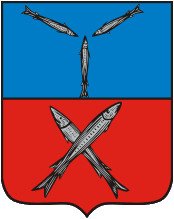Volgograd
Volgograd, formerly known as Stalingrad, is a city in Southwest Russia, situated on the western bank of the Volga River. It is the administrative center of Volgograd Oblast. This city is best known for its pivotal role during the World War II Battle of Stalingrad, which turned the tide of the war in favor of the Allied Powers. Today, Volgograd is a major center of industry, commerce, and culture in the region, with a population of over 1 million people.
History[edit | edit source]
Volgograd's history dates back to its founding in 1589 as Tsaritsyn, a fortress to defend the southern border of the Tsardom of Russia. The city's strategic location made it a focal point of military engagements and trade. In 1925, Tsaritsyn was renamed Stalingrad in honor of Joseph Stalin, a key figure in the Soviet Union's early years. The city's most significant historical event, the Battle of Stalingrad from 1942 to 1943, is considered one of the deadliest battles in human history. It was during this battle that the Soviet forces decisively defeated the Nazi invaders, marking a turning point in World War II. In 1961, as part of Nikita Khrushchev's de-Stalinization efforts, the city was renamed Volgograd.
Geography[edit | edit source]
Volgograd stretches along the Volga River, covering an area of about 859 square kilometers. The city's landscape is characterized by its flat terrain and the large Volga River, which is integral to the city's economy and transport. The region around Volgograd is primarily steppe, with a climate that is semi-arid, experiencing hot summers and cold winters.
Economy[edit | edit source]
The economy of Volgograd is diverse, with major industries including manufacturing, oil refining, shipbuilding, and steel production. The city is also a significant agricultural center, benefiting from the fertile lands of the surrounding steppe. In recent years, Volgograd has been developing its service sector, with an increase in tourism partly due to its historical significance and monuments, such as the Mamayev Kurgan memorial complex.
Culture and Society[edit | edit source]
Volgograd is a cultural hub in Southwest Russia, hosting numerous museums, theaters, and galleries. The city's cultural life is enriched by its history, with many institutions dedicated to the memory of the Battle of Stalingrad. Education is another important aspect of the city's life, with several higher education institutions, including Volgograd State University.
Transportation[edit | edit source]
The city is a key transport hub in the region, with extensive road, rail, and river connections. The Volgograd International Airport connects the city to major Russian and international destinations. Public transportation within the city includes buses, trolleys, and a unique metrotram system, providing efficient urban mobility.
Tourism[edit | edit source]
Volgograd attracts visitors with its historical sites, particularly those related to the Battle of Stalingrad. The Mamayev Kurgan memorial complex, featuring the towering statue of The Motherland Calls, and the Panorama Museum of the Battle of Stalingrad are among the most visited attractions. The city's embankment along the Volga River is also a popular spot for leisure and recreation.
See Also[edit | edit source]
Search WikiMD
Ad.Tired of being Overweight? Try W8MD's physician weight loss program.
Semaglutide (Ozempic / Wegovy and Tirzepatide (Mounjaro / Zepbound) available.
Advertise on WikiMD
|
WikiMD's Wellness Encyclopedia |
| Let Food Be Thy Medicine Medicine Thy Food - Hippocrates |
Translate this page: - East Asian
中文,
日本,
한국어,
South Asian
हिन्दी,
தமிழ்,
తెలుగు,
Urdu,
ಕನ್ನಡ,
Southeast Asian
Indonesian,
Vietnamese,
Thai,
မြန်မာဘာသာ,
বাংলা
European
español,
Deutsch,
français,
Greek,
português do Brasil,
polski,
română,
русский,
Nederlands,
norsk,
svenska,
suomi,
Italian
Middle Eastern & African
عربى,
Turkish,
Persian,
Hebrew,
Afrikaans,
isiZulu,
Kiswahili,
Other
Bulgarian,
Hungarian,
Czech,
Swedish,
മലയാളം,
मराठी,
ਪੰਜਾਬੀ,
ગુજરાતી,
Portuguese,
Ukrainian
Medical Disclaimer: WikiMD is not a substitute for professional medical advice. The information on WikiMD is provided as an information resource only, may be incorrect, outdated or misleading, and is not to be used or relied on for any diagnostic or treatment purposes. Please consult your health care provider before making any healthcare decisions or for guidance about a specific medical condition. WikiMD expressly disclaims responsibility, and shall have no liability, for any damages, loss, injury, or liability whatsoever suffered as a result of your reliance on the information contained in this site. By visiting this site you agree to the foregoing terms and conditions, which may from time to time be changed or supplemented by WikiMD. If you do not agree to the foregoing terms and conditions, you should not enter or use this site. See full disclaimer.
Credits:Most images are courtesy of Wikimedia commons, and templates, categories Wikipedia, licensed under CC BY SA or similar.
Contributors: Prab R. Tumpati, MD






